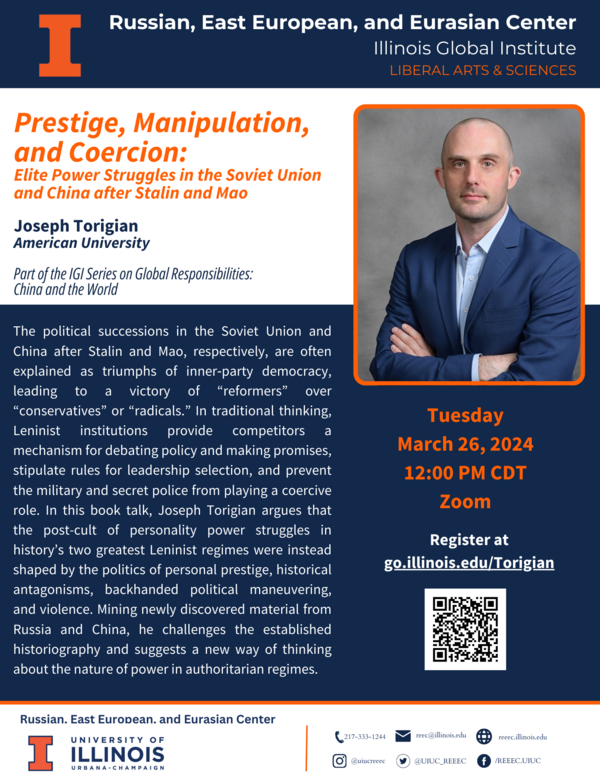IGI Series on Global Responsibilities: Joseph Torigian, "Prestige, Manipulation, and Coercion: Elite Power Struggles in the Soviet Union and China after Stalin and Mao"

- Sponsor
- Illinois Global Institute; Center for African Studies; Center for East Asian and Pacific Studies; Center for Global Studies; Center for Latin American and Caribbean Studies; Center for South Asian & Middle Eastern Studies; European Union Center; Russian, East European, and Eurasian Center; Women and Gender in Global Perspectives
- Speaker
- Joseph Torigian (Assistant Professor, School of International Service, American University)
- Cost
- Free and open to the public.
- Registration
- Registration
- Contact
- REEEC
- reec@illinois.edu
- Views
- 318
The political successions in the Soviet Union and China after Stalin and Mao, respectively, are often explained as triumphs of inner‑party democracy, leading to a victory of “reformers” over “conservatives” or “radicals.” In traditional thinking, Leninist institutions provide competitors a mechanism for debating policy and making promises, stipulate rules for leadership selection, and prevent the military and secret police from playing a coercive role. In this book talk, Joseph Torigian argues that the post-cult of personality power struggles in history’s two greatest Leninist regimes were instead shaped by the politics of personal prestige, historical antagonisms, backhanded political maneuvering, and violence. Mining newly discovered material from Russia and China, he challenges the established historiography and suggests a new way of thinking about the nature of power in authoritarian regimes.
This event will be held virtually over Zoom. To register, please visit https://go.illinois.edu/Torigian.
Joseph Torigian is a Research Fellow at Stanford's Hoover History Lab and an Assistant Professor at American University's School of International Service.
This book talk is part of the Illinois Global Institute's Series on Global Responsibilities: China and the World.